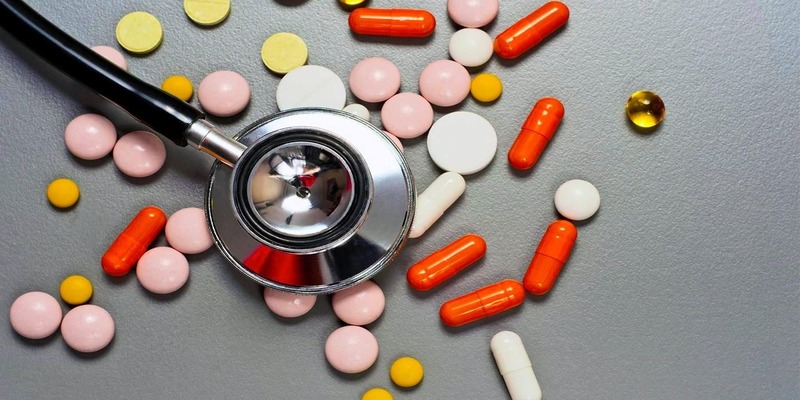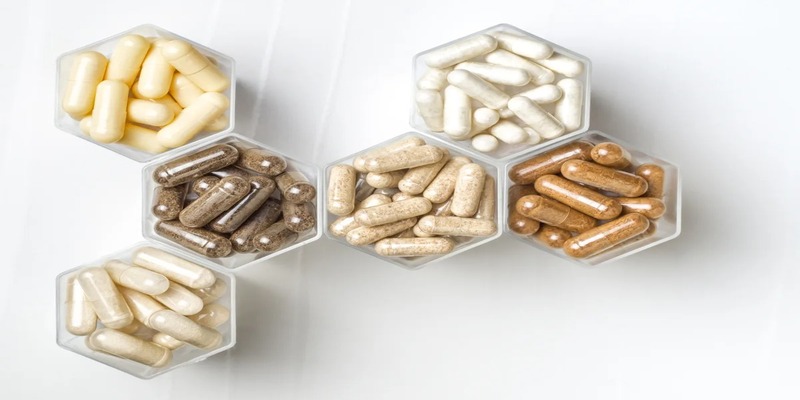Cholesterol, a lipid found in every cell, plays an essential role in metabolic processes and is crucial to life. While the body requires some cholesterol, having too much of it, especially the low-density lipoprotein (LDL), sometimes known as "bad" cholesterol, can be harmful.
If your cholesterol levels are excessively high, your doctor may prescribe medication or suggest adjustments to your diet and exercise routine. ² To that end, you might be curious about cholesterol-lowering supplements.
Why Would It Be Necessary to Reduce Cholesterol?

Cholesterol may be made in the body, but it can also be present in some foods. Optimal health requires maintaining a cholesterol level that is within the normal range. Vitamin D and other hormones can't be synthesized without cholesterol.
Stroke and heart attack are only two consequences that might result from high cholesterol if it isn't managed. ³ Your doctor may take a blood sample to check your lipid profile. The standard unit of measurement for cholesterol is milligrams per deciliter.
Nutritional Supplements That May Reduce LDL Cholesterol
Most experts agree that a good diet, regular exercise, and quitting smoking are the best natural strategies to reduce cholesterol levels. Additionally, there are dietary supplements that have shown promise in this regard.
Regarding the FDA, a dietary supplement is defined as an orally consumed product with nutrients designed to augment an existing diet. Since the FDA does not evaluate nutritional supplements in the same way it does pharmaceuticals, consumers should exercise caution before using them.
Yeast-Red Rice
Red yeast rice has been used as a nutritional supplement in classic Chinese fare for centuries. The yeast may or may not create monacolin K, depending on the conditions in which it is produced. The cholesterol-lowering medication lovastatin can be found in its natural form in monacolin K.
Two months of using red yeast rice extract resulted in a 15-25% reduction in LDL cholesterol. However, the effectiveness of a monacolin K supplement is dose-dependent. ⁸ There is some doubt about the safety of red yeast rice products.
Berberine
In traditional Chinese medicine, berberine is utilized as a dietary supplement. In the case of goldenseal, it is extracted from the plant's roots and processed into a food product. ⁹ You can get the benefits of goldenseal by taking a supplement, but the quantity of berberine your body absorbs will be relatively low.
This implies that the advantages seen in studies, including berberine, might not necessarily transfer to goldenseal. ¹⁰ LDL and triglyceride levels can also be lowered by using berberine. ¹¹ It is unclear how exactly berberine functions once it reaches the body.
Omega-3 Fatty Acids Found In Fish Oil

Omega-3 fatty acids, which may be found in fish, are thought to lower blood cholesterol levels. Because of this need, some supplement companies have started taking fish oil capsules. Oils such as fish liver oil and krill oil can be purchased in liquid form, used for cooking, or taken internally as a nutritional supplement.
Some people have found that taking massive dosages of omega-3 fatty acids helps lower their triglyceride levels. ¹⁴ Fish oil supplements were compared to fresh fish in a 2017 research. Total cholesterol, non-HDL cholesterol, and triglyceride levels were all considerably reduced in both groups.
Garlic
Garlic has long been touted as a healthful addition to the diet due to its purported ability to lower blood pressure and cholesterol. In addition to its powdered form, Garlic can also be utilized in its raw or cooked forms. In addition, garlic oil can be refined and used for culinary purposes.
Garlic's effectiveness in reducing cholesterol has been supported by the vast majority of available research, notwithstanding a few discrepancies. ¹⁵ Several garlic-related studies were summarized and analyzed in a 2016 literature review.
Soluble Fiber
Adequate fiber consumption, as part of a balanced diet, may aid in cholesterol. Supplementing with soluble fibers like psyllium may help some people reduce their cholesterol levels by increasing their daily fiber intake. ¹⁹ Fruits and vegetables are good sources of soluble fiber.
There is also a supplement form available. When combined with water, soluble fiber creates a gel-like material that makes digestion more leisurely. ¹⁸ You may avoid absorbing the cholesterol you consume by eating soluble fibers, which bind to the cholesterol in your feces.
Summary
Stroke and heart attack are only two potentially fatal outcomes associated with high cholesterol levels. To lower your risk for these severe consequences, your healthcare professional may suggest a combination of strategies for controlling your cholesterol levels.
Even though several intriguing dietary supplements may assist with cholesterol, high-quality studies confirming their safety and efficacy is sometimes challenging to uncover.
watch next


